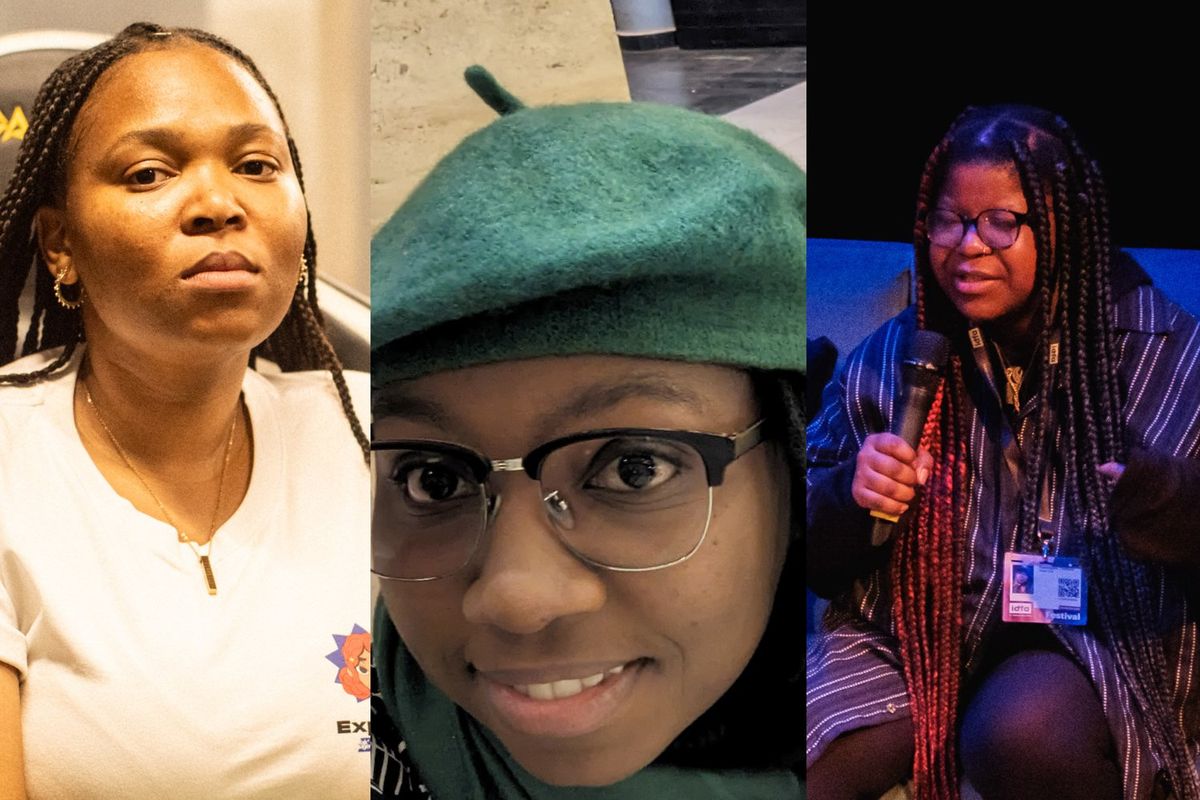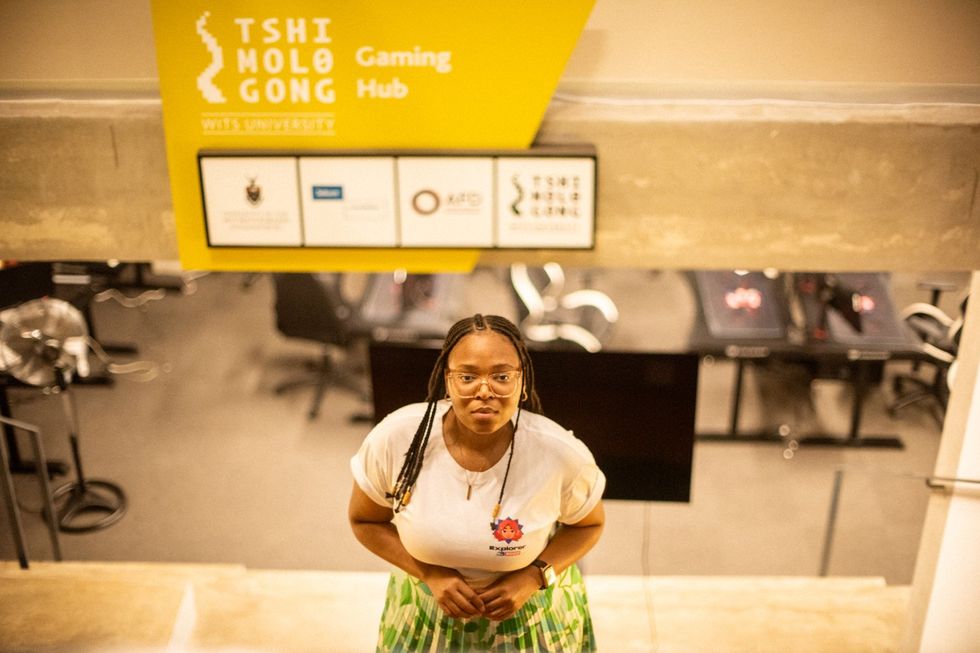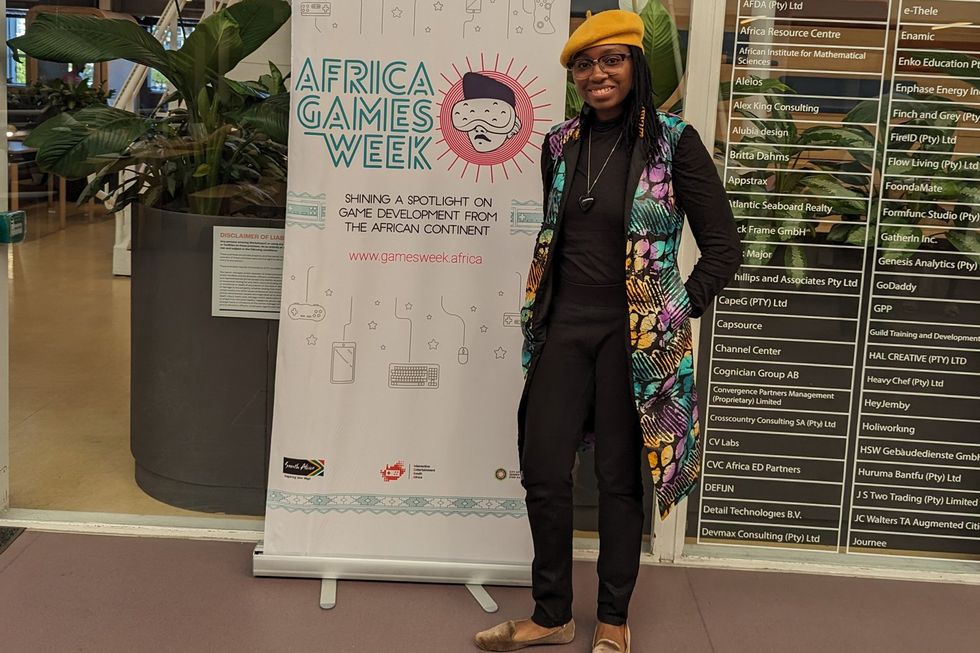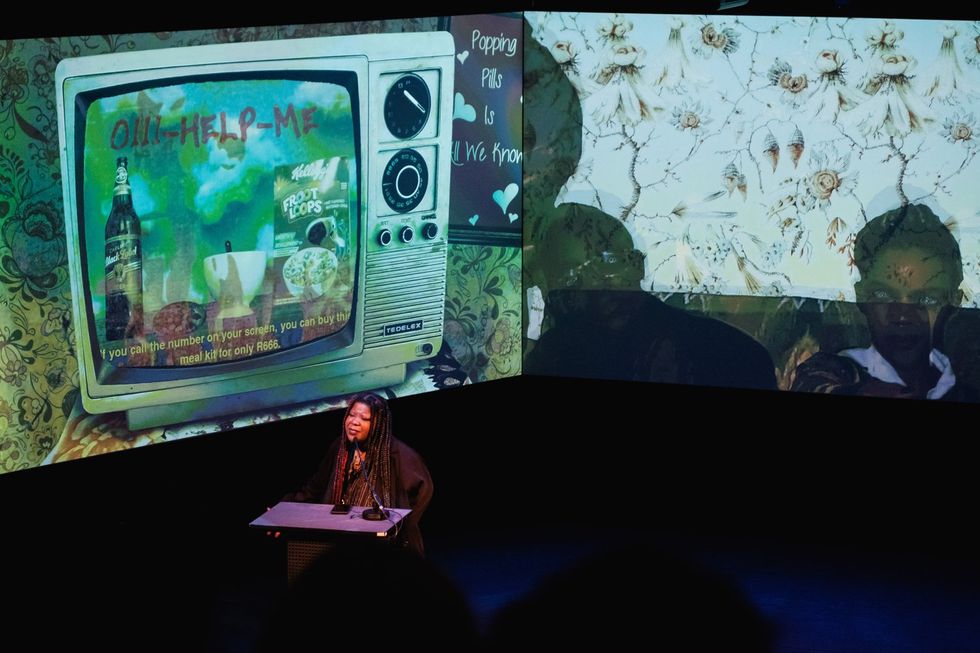The African Women Braving the Odds in Game Development
Three game developers share the thrills, challenges, and growth strategies for African women in the male-dominated industry.

African women gamers from left to right: Avuzwa Ntshongwana, Wendi Ndaki, and Aluta Null.
The global gaming market, which boomed during the lockdown brought on by the COVID-19 pandemic, is currently estimated to be worth $245 billion, and is projected to reach $545.98 billion by 2028. While these statistics can look good on paper, they often fail to translate to an African market that is still developing, with many countries still lagging behind due to factors related to access — infrastructure, institutional support, audience development, and eventual buy-in. Still, mobile gaming is big in key markets like South Africa, Nigeria, and Ethiopia.
While there are many women who are into gaming as a sport or as a means of relaxation – 48 percent of the market in the U.S. in 2022, and approximately 37 percent of the market in Asia – the same cannot be said for the development side. This is why the idea of women game developers working on the African continent is interesting and worth exploring. What challenges do they face on a daily basis? How accessible is funding? What personal projects are they working on? In order to get a thorough understanding of the lay of the land, we reached out to three women – two from South Africa, and one from Kenya.
Challenges
Avuzwa Ntshongwana formed SouthGame Studio with two other women in 2021. They currently work from the Tshimologong Precinct, a tech hub located in Braamfontein, Johannesburg. The team, which also comprises Nkateko Nompumelelo and Tenyeko Mosikili, gained recognition through a 3D game called Sizwe, about a teenage girl looking to lead AmaZulu warriors. Sizwe’s challenge in the game is to learn about the impact women had during prominent wars in South African history.

Self-taught Ntshongwana has had a challenging journey on her way to becoming confident in her abilities as a developer. She says that 2022 was particularly difficult. “Little did I know that the gaming space is white-dominated and male-dominated. We never used to go into the [games development] studio because we were so scared and shy to work with boys. We used to take our laptops and go sit upstairs and work from there, until the day came to use the machines because our game was so heavy.”
SouthGames Studio is passionate about building games that drive social impact. “I enjoy being able to build games that highlight a lot of struggles we face as women and Africans, but still making casual and light games for people. I program a lot. Hopefully, when my studio is bigger enough, I can focus on game design more.”
Funding Models
Sizwe’s production was halted by a lack of funding, and this is something that has been highlighted before at the Fak’ugesi African Digital Innovation Festival. Ntshongwana reckons that women-focused funding can be helpful in aiding in the visibility of their efforts. “The money we received after our seed funding came from an organization that focuses solely on women in games. This demonstrates that securing funding can be challenging for women in the gaming industry,” she says.
Kenya’s Wendi Ndaki has spent years writing about gaming on the African continent, and is as a result, best-placed to offer more insight. “In Africa, there's a growing emphasis on encouraging women in gaming. Events like Swahili Esports Champions showcase female talent and entrepreneurship from across the continent. As someone who graduated from the all-women DCI Intermediaries Short Course, I've experienced firsthand the support for female entrepreneurs. This includes funding opportunities, like my trip to the Fak’ugesi Festival in Johannesburg, where I had the chance to showcase the work of fellow creatives.”

She also believes that game development studios can enhance their funding models by exploring additional opportunities such as animations, virtual reality simulations, and creating gaming solutions for industries. “Additionally, investing in passive income-generating assets can provide steady income streams to support their video game projects,” she says.
Pushing Passion
Johannesburg-based Aluta Null has been involved with digital media of some form or the other since she was a child in the early 2000s. This carried on into her university years in the mid-2010s, where she studied their then-new Digital Arts course that she figured would combine her multiple disciplines. She found, however, that the degree program focuses on game design.

“I enjoyed game development a lot because there are so many roles that it consists of, and I really like the critical thinking that each one requires," she says. "Game design became a very important space for me as an artist, and I stayed with it and majored in it." She had a chance to do a studio residency during 2021, and this is where PHANTOM was developed. It is, “an experiential articulation of mental health disintegration and the affective textures of states of neurodivergency.”
PHANTOM was invited to the IDFA DocLab in Amsterdam through a connection at Fak’ugesi. Null shares that it was a challenge to revisit a work that had been dormant for two years.
Bubblegum Gallery presents 'PHANTOM' a solo exhibition by ALUTA NULLyoutu.be
“I learned a lot about the very unique obstacles in touring an XR project. I didn’t really think it was possible to take PHANTOM overseas (or even just re-do it in general) but IDFA DocLab’s team was amazing. It genuinely wouldn’t have been possible if I didn’t have their support and resources,” she says.
It was an “intense and overwhelming” excursion for her, and she is still reflecting on the entire experience. “My biggest takeaway was that we need more Black Africans in many more international festivals.”
- Paul Sika Speaks On The Influence of Cinema, Video Games & Manga Comics w/ Prêt-À-Poundo ›
- Black Girls Only: A Playlist of Our Favorite Black Girl Anthems ›
- This Exciting Afrofuturist Role-Playing Game Is Revolutionizing the Video Game Industry in Africa & Beyond ›
- Cameroonian Studio Debuts the First African Role-Playing Game on Xbox - Okayplayer ›

